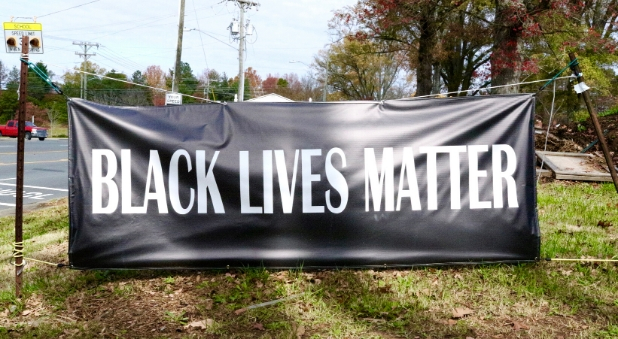A few weeks ago, I had a conversation with a friend who asked me why I hadn’t posted in support of the #BLackLivesMatter movement which was sweeping across social media. She noted that I had posted about sustainability and environmentalism on my Instagram, so why not BLM? “Silence is violence,” she reminded me.
It really hit me, because while there are lots of issues in my life I have worked to live in a godly and considered way, I have kept my own Instagram feed full of pictures of the cats I am pet sitting, rather than seeing it as a way to express my values.
While I recognise it’s an incredibly privileged position to be able to sit down and reflect on which issues I should be posting online, it’s a relevant question for lots of Christians. There is so much to consider when it comes to deciding whether we should use our social media platforms for social justice. Will it have an impact? Will it turn people away from Jesus? Should I post about everything?
We are called to prioritise justice
The Bible calls us to stand up for justice, after God’s own heart. While we can be confident that ultimate justice will be achieved when Jesus returns, we are called to seek justice in our own lives.
This is clear in Isaiah 1, where God’s people are called to return to God and: “Learn to do good; seek justice, correct oppression; bring justice to the fatherless, and please the widow's cause” (Isaiah 1:17).
It becomes even clearer looking at the teaching of Jesus – who calls out the religious leaders of the time for focusing on small-time acts of godliness and looking as though they are doing the right thing, rather than having a heart after God’s heart:“But woe to you Pharisees! For you tithe mint and rue and every herb, and neglect justice and the love of God. These you ought to have done, without neglecting the others” (Luke 11:42).
As God-fearing people, we are called to care for the vulnerable and treat people with other-person-centred love (and this love should be a defining characteristic of the Christian church!). However, that’s not all we are called to do. The Bible reminds us that, ultimately, God will achieve justice for our world. Our key calling is to share the good news of Jesus with people who are in desperate need of a relationship with him.
So what does it look like to share the gospel and stand for justice?
There are many answers to that. For myself, I try to address each category in my life to see how I can make sure my actions line up with the values of the Bible. These categories include work, friendships, family, money, where I shop and, yes, what I post on social media.
Social media is a powerful tool. It has the potential to reach more people than we can hope to speak with in one day. It is a way of engaging with organisations that otherwise would not hear our voice. It’s also an expression of identity.
Social media is a powerful tool, but the word of God is more powerful.
We have also seen the power of social media movements in the past few months. Comedian Celeste Barber raised $51 million for bushfire relief through a Facebook donation page. Even if you have a tiny account and receive 15 likes, that’s 15 people who are engaging with something you have said. If you were sitting in a room with those 15 people, it would feel like a crowd!
It is not enough to only post well-meaning content or share calls to justice on social media – that sort of virtual signalling can come close to what Jesus accused the Pharisees of, caring only about the outside. However, our presence on social media is an important part of how we relate to the people in our lives.
As we consider the social issues we care about, and the best way to choose what we might write about on social media, it is a chance to consider how we are actively seeking justice, both online and in other spheres.
Why not perform a social media audit? Take a moment and ask yourself:
Can someone tell you are a Christian based on what you post on social media?
Are there other causes and values you have supported?
What about in the conversations you have had in the past two weeks?
What impression do you give online:
- angry or understanding?
- willing to listen or stubborn?
- compassionate or hard-hearted?
- do you give this same impression in person?
Looking at my social media platforms, I am presenting a sanitised version of my life. While there is some content about returning to church post-COVID, overall it is very hard to find what I care about or stand for as a person.
I want to demonstrate the causes I support – both online and in offline conversations – but more than that I also want it to be clear that Jesus is the reason I support those causes. Social media is a powerful tool, but the word of God is more powerful.
























